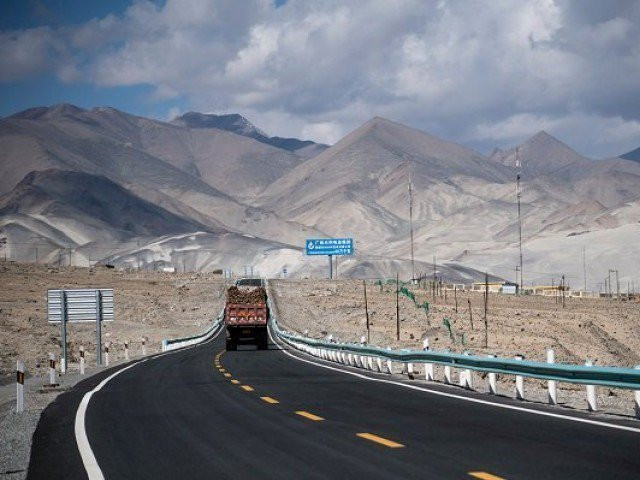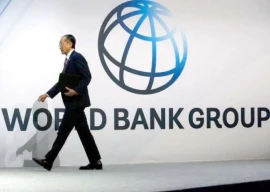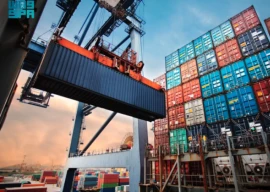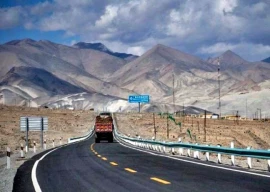
China is currently focused on revitalising the Belt and Road Initiative (BRI), which was expected following the relaxation of Covid-19 policies.
Since the recent two sessions, efforts to do so have been accelerated. It is anticipated that China will offer new opportunities for investment, with Chinese companies likely to invest in countries along the BRI. However, this new momentum of investment will be accompanied by a new philosophy of development, centred around the principles of high-quality development and green recovery.
China has made it clear that in order to achieve prosperity for both China and the world, development must adhere to the principles of ecological civilisation and sustainable development. It is crucial for Pakistan to contemplate the pace of implementation and status of projects under the China-Pakistan Economic Corridor (CPEC).
Pakistan must also explore how to adjust its policy framework to benefit from the new philosophy and principles of high-quality development. This is especially important for Pakistan, as the country is highly susceptible to the effects of climate change and requires a development model that is compatible with the climate.
Furthermore, China has identified Pakistan as a high-priority country and intends to give a boost to the CPEC initiative. During Ahsan Iqbal’s visit, the Chinese leadership expressed strong desire to increase investment under CPEC.
In order to capitalise on the new opportunities, Pakistan must refine its existing policy and implementation framework. Merely making big statements and staging photo-ops will not suffice. Pakistan must take concrete steps and introduce a series of reforms in order to fully benefit from the new opportunities. These steps should be innovative and forward-thinking, as they have the potential to help in economic recovery.
To achieve this goal, Pakistan must move beyond relying on the euphoria of its strategic location. While it is true that Pakistan occupies a strategic location, it alone will not help.
Furthermore, the notion of strategic location is relative and not absolute. For instance, if Pakistan wishes to access Central Asia, it must first pass through Afghanistan. In such a scenario, Afghanistan would be deemed to hold the strategic location.
Additionally, Pakistan must consolidate the progress made under CPEC. However, the current institutional framework and business environment are not conducive to fast-tracking implementation. In fact, they are likely to create hurdles.
Despite Pakistan’s improvement in the ease of doing business ranking, ground-level issues still persist. The business community has to deal with numerous organisations, institutes, and departments to pay taxes, obtain licences, or register a company.
For instance, there are 35 different tax agencies in Pakistan, resulting in wastage of time and resources. Moreover, the institutional system is inefficient and displays signs of rent-seeking.
In a nutshell, the process is cumbersome and discourages potential investors and industrialists from investing in Pakistan. In this backdrop, it is imperative for Pakistan to move beyond rhetoric and adopt measures that can give a fresh impetus to CPEC implementation.
One plausible solution could be to revive the CPEC Authority, which was an excellent initiative of the Pakistan Tehreek-e-Insaf (PTI) government. Although the CPEC Authority was primarily created as a monitoring body, it played a crucial role in facilitating stakeholders to implement CPEC projects.
Even during the pandemic, the CPEC Authority continued to function and deliver results, demonstrating the resilience and determination of Pakistan and China to keep CPEC moving forward.
However, the previous structure and setup of the CPEC Authority may not be adequate to meet the demands of the second phase of CPEC. The authority was previously responsible for overseeing and monitoring ongoing projects.
To fulfil the requirements of the second phase, a more robust and dynamic authority is required. Therefore, it is necessary to reform the authority, and the following suggestions are proposed for discussion and consideration:
Firstly, it is necessary to elevate the status of CPEC Authority. The head of CPEC Authority should hold the rank of a federal minister. Furthermore, the CPEC Authority should be granted the power to make and execute decisions in close collaboration with relevant ministries and departments.
Secondly, it is important to centralise services and work related to CPEC, particularly for industrialisation and agriculture, under the CPEC Authority.
Currently, these activities are scattered and time-consuming. Therefore, they should be consolidated under the CPEC Authority, which should also be authorised to issue licences, provide access to services such as electricity and gas, and manage taxation.
Thirdly, the CPEC Authority should have a diversified structure with two distinct departments: governance and research. The governance department would be responsible for programme execution, ensuring transparency and accountability. The research department would be tasked with devising innovative ways to attract investment, analysing international markets and global investment policies, and helping the government understand the philosophy of green BRI.
Fourthly, the CPEC Authority should be an apolitical body, immune to changes in government. As all political parties and stakeholders have consensus on CPEC, it should not be difficult to ensure that the authority remains apolitical. It is imperative that all political parties and stakeholders work together to ensure the authority’s continuity and stability.
Fifth, to ensure inclusiveness, the government could establish a National CPEC Committee (NCC), chaired by the prime minister of Pakistan.
The committee should include representatives from the five leading political parties, the leader of the opposition, the chief ministers of provinces, the prime minister of Azad Jammu and Kashmir, the services chiefs, and the Chief Justice of Pakistan.
This committee could help address challenges that have arisen since the 18th Amendment and provide vision and direction for strengthening cooperation. To ensure higher standards of work and transparency, a strong monitoring and accountability mechanism would be necessary. To achieve this, a sub-committee could be created by the NCC to oversee and enforce transparency and accountability measures.
This sub-committee would be the most suitable forum, as it has representation from all major stakeholders.
In conclusion, the CPEC Authority should be staffed with genuine economic experts and political economists with a background and understanding of China. These experts should have comprehensive knowledge of the Chinese model of economy and development, governance, community with a shared future, GSI, GDI, and ecological civilisation.
This is necessary because western experts do not fully understand China and try to compare apples to oranges.
The writer is a political economist and a visiting research fellow at Hebei University, China
Published in The Express Tribune, April 10th, 2023.
Like Business on Facebook, follow @TribuneBiz on Twitter to stay informed and join in the conversation.




1731975305-0/Untitled-design-(40)1731975305-0-165x106.webp)
1731975060-0/Untitled-design-(39)1731975060-0-165x106.webp)




1730379446-0/WhatsApp-Image-2024-10-31-at-17-56-13-(1)1730379446-0-270x192.webp)










COMMENTS (1)
Comments are moderated and generally will be posted if they are on-topic and not abusive.
For more information, please see our Comments FAQ